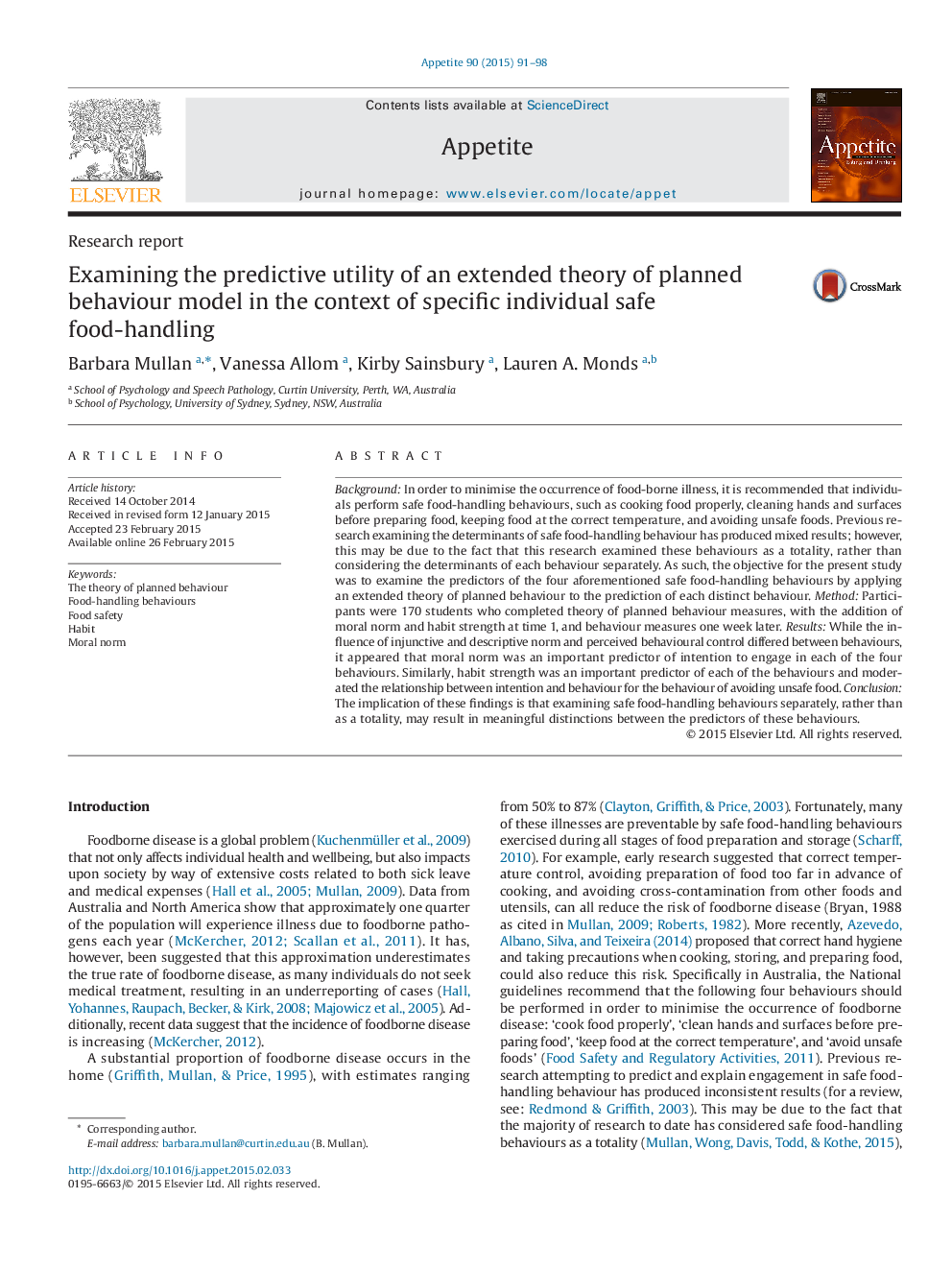| Article ID | Journal | Published Year | Pages | File Type |
|---|---|---|---|---|
| 7308802 | Appetite | 2015 | 8 Pages |
Abstract
Background: In order to minimise the occurrence of food-borne illness, it is recommended that individuals perform safe food-handling behaviours, such as cooking food properly, cleaning hands and surfaces before preparing food, keeping food at the correct temperature, and avoiding unsafe foods. Previous research examining the determinants of safe food-handling behaviour has produced mixed results; however, this may be due to the fact that this research examined these behaviours as a totality, rather than considering the determinants of each behaviour separately. As such, the objective for the present study was to examine the predictors of the four aforementioned safe food-handling behaviours by applying an extended theory of planned behaviour to the prediction of each distinct behaviour. Method: Participants were 170 students who completed theory of planned behaviour measures, with the addition of moral norm and habit strength at time 1, and behaviour measures one week later. Results: While the influence of injunctive and descriptive norm and perceived behavioural control differed between behaviours, it appeared that moral norm was an important predictor of intention to engage in each of the four behaviours. Similarly, habit strength was an important predictor of each of the behaviours and moderated the relationship between intention and behaviour for the behaviour of avoiding unsafe food. Conclusion: The implication of these findings is that examining safe food-handling behaviours separately, rather than as a totality, may result in meaningful distinctions between the predictors of these behaviours.
Related Topics
Life Sciences
Agricultural and Biological Sciences
Food Science
Authors
Barbara Mullan, Vanessa Allom, Kirby Sainsbury, Lauren A. Monds,
